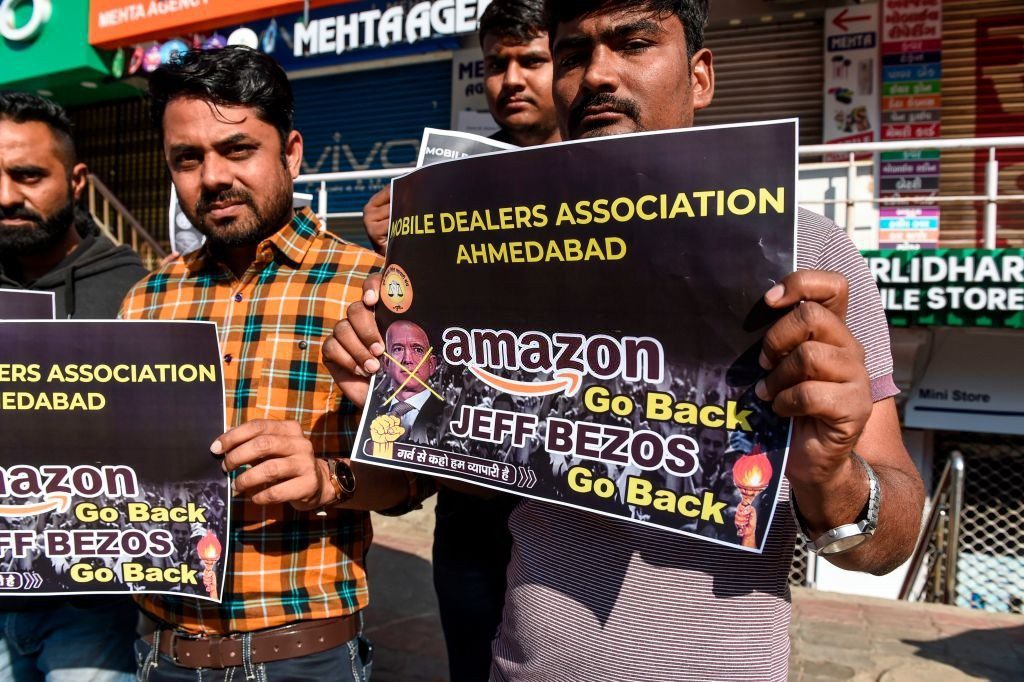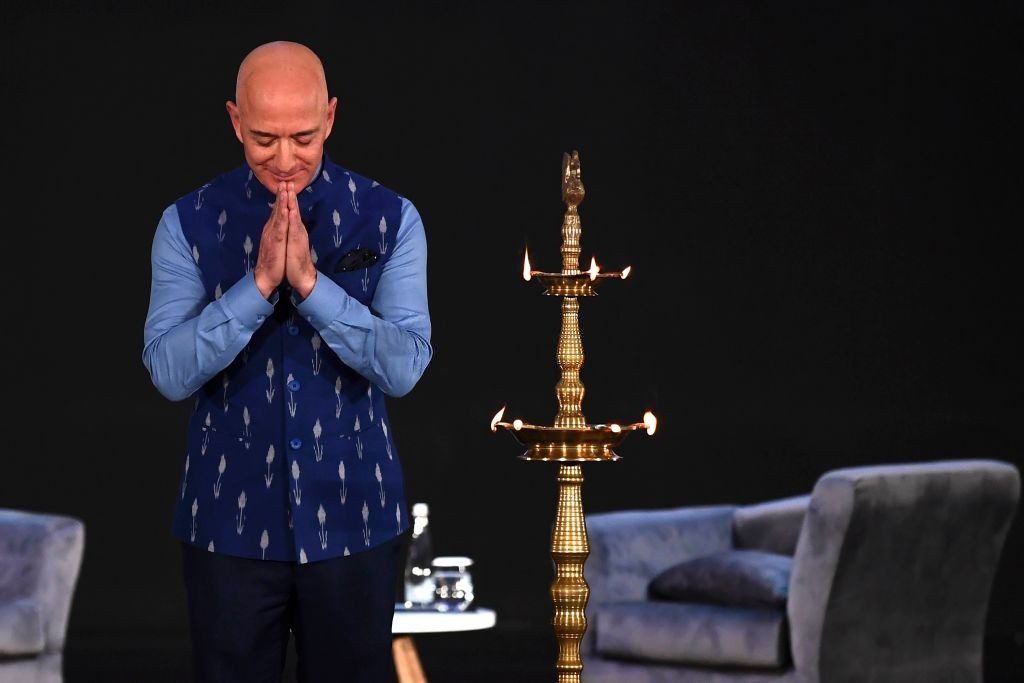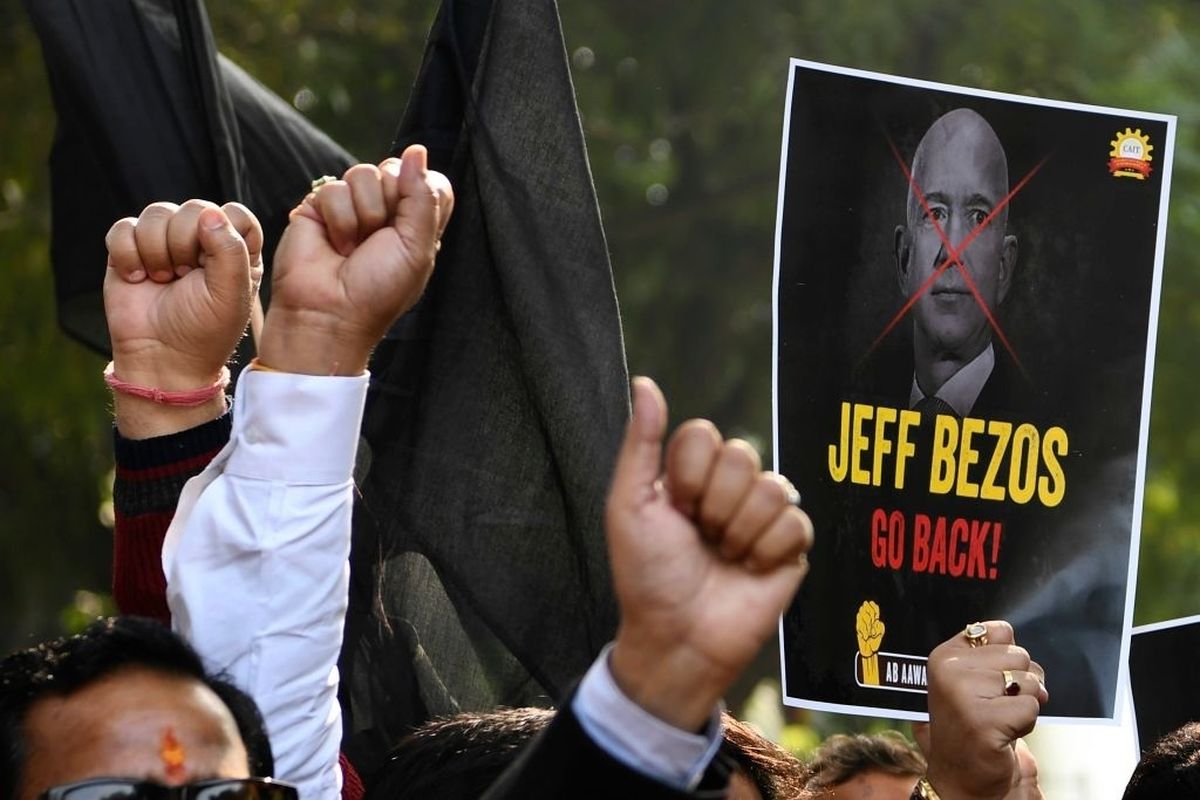In the heart of New Delhi’s largest wholesale bazaar, merchants who on a normal day will compete with each other have united against a common enemy “Amazon, Flipkart!”. These two e-commerce giants control a lions share in the lucrative and ever-growing Indian e-commerce space.
India’s government in October announced an investigation into the allegations of predatory pricing. Amazon and Walmart, however, maintain that their operations comply with Indian laws and that they act only as a third-party marketplace.
Now Amazon has moved to quash an antitrust investigation in India launched at the behest of local merchants, arguing the probe would do irreversible damage to the company and its reputation.
Responding to an investigation opened by India’s Competition Commission (CCI) in January over allegations the company – as well as Walmart-owned Flipkart, one of its main rivals – violated competition laws, Amazon, said the probe was “bereft of the foundation” and would cause “irreparable” losses in a court filing on Monday.
“(The investigation order) suffers from non-application of mind as it appears to contain no reference to the finding of an appreciable adverse effect on competition,” the filing said, as cited by Reuters.
The reason behind the anti-trust probe against Amazon and Flipkart

The case involves mostly predatory pricing, against which the Indian Government recently brought a law to bring them at par with brick and mortar stores.
However, the local merchants maintain that the U.S. giants still violate Indian law by racking up billions of dollars of losses to fund deep discounts and discriminating against small sellers. The companies deny the allegations.
The shopkeeper association is a 70 million small merchants who collectively control almost 90% of India’s retail trade, India’s shopkeeper’s union has proven to be a strong political force. The traders are essentially also a major part of the voter base of Prime Minister Narendra Modi’s ruling party BJP (Bharatiya Janta Party).
Recent developments on the Amazon India situation

While the Competition Commission states that there was a “prima facie case” that required investigation, both companies have denied the allegations, with Flipkart stating it was “fully compliant” with Indian law soon after the probe was ordered.
Amazon at the time said it was “confident” it would be cleared of any wrongdoing and would “welcome” a chance to address the accusations.
Making a visit to the country only days after the launch of the probe on January 13, Amazon CEO Jeff Bezos prompted a wave of protests from Indian merchants during his stay, with one merchant organization – the Confederation of All India Traders – calling on its members to stage strikes and sit-ins, and even requesting a meeting with Prime Minister Narendra Modi to address what it deemed “economic terrorism” from the big box retailers.
Though Bezos though pledged a $1 billion in investments in India, and to facilitate some $10 billion in exports from the country in the next five years, India’s Minister of Commerce and Industry Piyush Goyal didn’t seem much impressed, warning that Amazon must follow the “letter and spirit” of Indian law.



